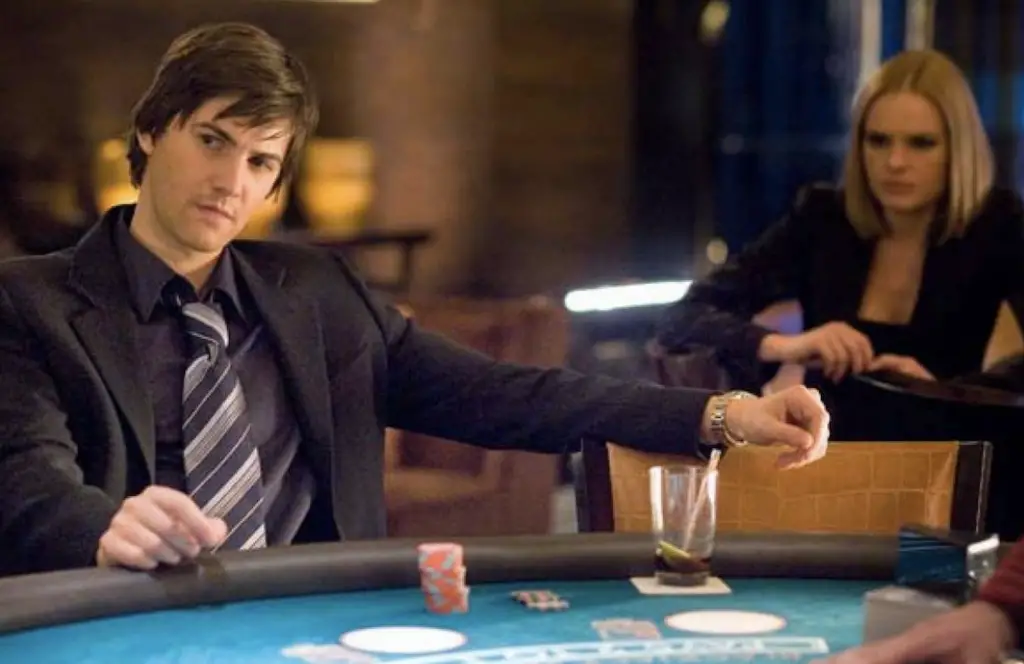
The state of Canada’s university life and the attendant debate of higher education versus hire/education is so vividly captured in John Zaritsky’s College Days, College Nights that it should form the core curriculum of both those contemplating enrolment and – whether, family, spouses or governments – those who must pay the freight.
Set during the 2003-2004 academic year on the spectacular University of British Columbia campus, the six-hour, three-part documentary employs the talents of professional and intern filmmakers including sixteen undergraduates who have courageously captured their personal observations, feelings and fears through frequent entries into their video diaries. Then, through the miracle of Stuart de Jong’s editing and Zaritsky’s near-perfect instinct for time, tone and story, all manner of truth – intended or gleaned – spills onto the screen in a seemingly endless tide of revelation.
In Episode I (“It Almost Feels Okay”) we meet people at risk. 20-year-old Jayme (2nd Year Arts) admits that his laziness isn’t a hit at home so after “we had a little talk” moves onto campus where he’s perfectly free to make his own rules. 18-year-old Leila (1st year Nursing) also moves out from home but soon desperately misses her friends and family.
Perennial second-place finisher Spencer (3rd year Political Science) 20 years old but “born at 45” is obsessed with achieving some kind of political victory, be it one of the many debates he enters or taking his best shot and running as an independent candidate for the student council executive.
Howie, fresh from his success as valedictorian at his high school graduation, quickly discovers that his first year Science program is far more difficult than he’d imagined. He sinks from top dog to near failure, but bravely shares his fears with candor, a few tears, and defeatism “I’m pretty sure I’m going to fail.”
Mixed race Surina (Chinese/Scottish-Irish) starts off her final year Commerce degree by simultaneously losing her boyfriend but winning the inter-squad long-boat race.
Throughout it all, the reality of their personal and scholastic challenges rings true with a simple honesty that so-called reality shows can never hope to provide. Often times the worst news – “Howie received an F,” or Jayme getting dumped – is discreetly shared by caption, giving the viewer the required information yet allowing the “victim” to retain his or her dignity.
Other expected issues (excessive drinking, relationship roulette and constant fatigue) bind the troupe together whether or not they have direct interaction with one another. As with all three segments, final exams bring down the curtain on the subjects as everyone (viewers included) realize just how far they’ve grown over the year, but in ways and areas miles away from mere marks.
The second episode, “Between Past and Present Tense,” is the pick of the litter soaring from its opening frames – literally, as 22-year-old Byron (“I’m a banana: yellow on the outside, white on the inside”) bungee jumps bare-assed – to the graduation sequence fuelled more by Family Ties than fraternity follies.
Not everybody makes it. Millennium scholarship recipient, Christy, votes herself off the island to pursue an acting career in Toronto rather than wait for an audition that never materializes in Vancouver. Having worked out her path (get a degree as a safety net; act on the side) with her father, she seems unable to follow his guidance. His early death before first year Arts began left their long-anticipated Whistler ski trips as distant as a call back.
In his final year of Human Geography, 23-year-old Tejas struggles to survive emotionally. With his father living in Singapore and mother in India, he has no immediate family to counsel, comfort or console. Like countless others, he unknowingly slips into depression and fights for his very existence – alone.
Singaporean 2nd year Arts student, Gideon is as nervous as Howie but, at least has his family living with him. His father is also enrolled as a pastoral student. Gideon is elated when his dad finally takes him on as a disciple only to be abandoned when the family’s time is up and they return to Asia. Yet their departure empowers the anxious scholar to come out of his shell and, in a wonderful balance to Byron’s naked leap for attention, hurls himself out of a plane – without a cord – gliding fully covered to the safety of earth. Certainly his father’s advice was heeded in that effort: “Be careful in your choice, but don’t turn back … if fickle-minded you will go nowhere.”
By the time the report cards are in, Byron has survived his father’s scorn of his Mohawk cut (complete with war paint in a vain effort to pick up girls at his frat party), bought an expensive suit to impress others (“felt like a man of power, like I was going somewhere) and finally costumes himself in the graduation gown, which “helps reaffirm my father’s belief that I will be a success!”
When Mia’s parents divorce, following a thirty-year marriage, the 19-year-old 2nd year Arts student soon discovers that their roles have reversed: her parents need her support and acceptance even as she realizes that her father “has his faults.” Soon she’s dropped a couple of courses, but finds her niche through involvement as a Liberal supporter in the federal election campaign.
“Why Am I Doing This?” – the series finale – is the weakest of the three. Similar to Coach Carter’s theme of overcoming adversity (in this case a nagging back injury) to win, 3rd year Human Kinetics student Sheila’s sojourn from injury in Korea to the CIS national crown in Manitoba, spends too much time on the basketball court depriving the other stories of the same kind of depth as their predecessors. One wonders if UBC had lost whether the allocation of airtime would have been different.
Still, 2nd year Arts Lenny’s drinking binges, poker games and attempts at his own rehabilitation (“I pretty much leave [partying] to the weekends”) is compelling in its honesty. Closet alcoholics everywhere will take comfort in hearing and seeing one of their own throw-up on cue but also make the grade.
Josh’s naiveté about both his musical ability and breaking into the music business lends an air of credibility to the thousands of garage-band members world wide. Like this 19-year-old 2nd year Arts major, they will identify with – finally – winning the “Battle of the Bands,” then preparing to take their shot at fame and riches, only to have the lead singer move to Germany. On to the next!
But the real star is Michelle, who at 25 in her final year of Psychology is living off-campus with Libby, her guide dog. Unlike many of her colleagues, she has a partner that is always there for her, loves and protects her and is happy in her devotion. But the trusty canine doesn’t give her a hug. Michelle is philosophical about her lack of dates: “People have to grow up a bit before they notice you [with] a disability.” To compensate she volunteers, working with visually impaired seniors and children. At the completion of her studies, she opts to skip graduation and go horseback riding because during those years “I haven’t made an impact on one soul,” perhaps not realizing the effect her statement of despair will have on millions of others who embrace the norm and shun the unfamiliar.
Finally, therein lies the brilliance of Zaritsky’s work: Whether student, parent, or professor, viewers will inevitably find some parts of themselves. But will they be able to admit which ones are them?

